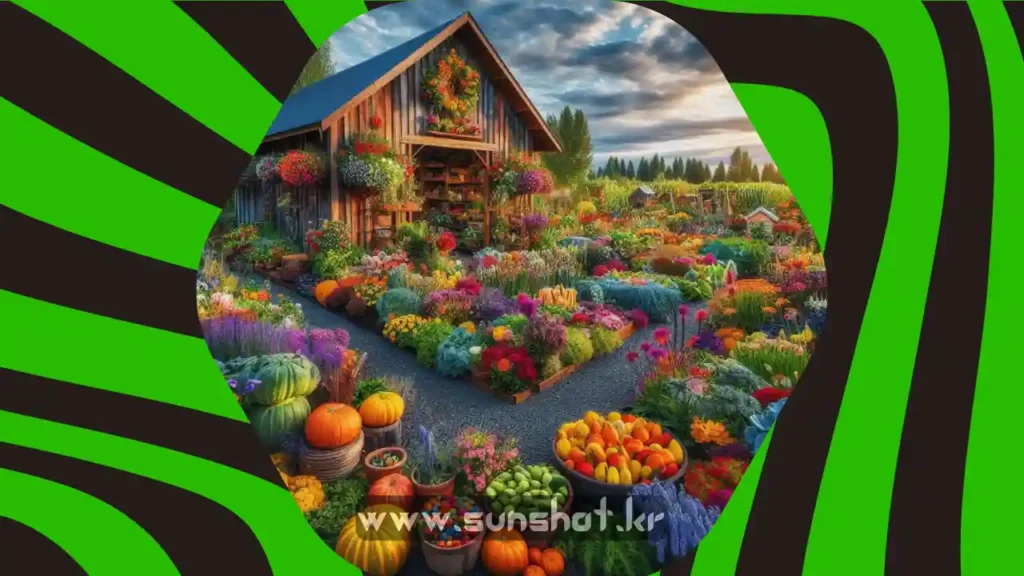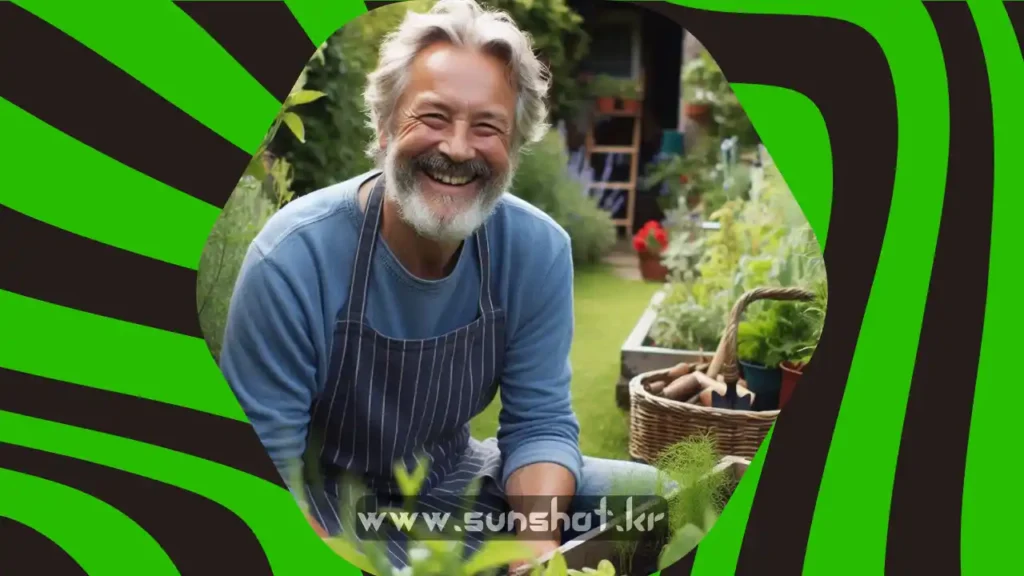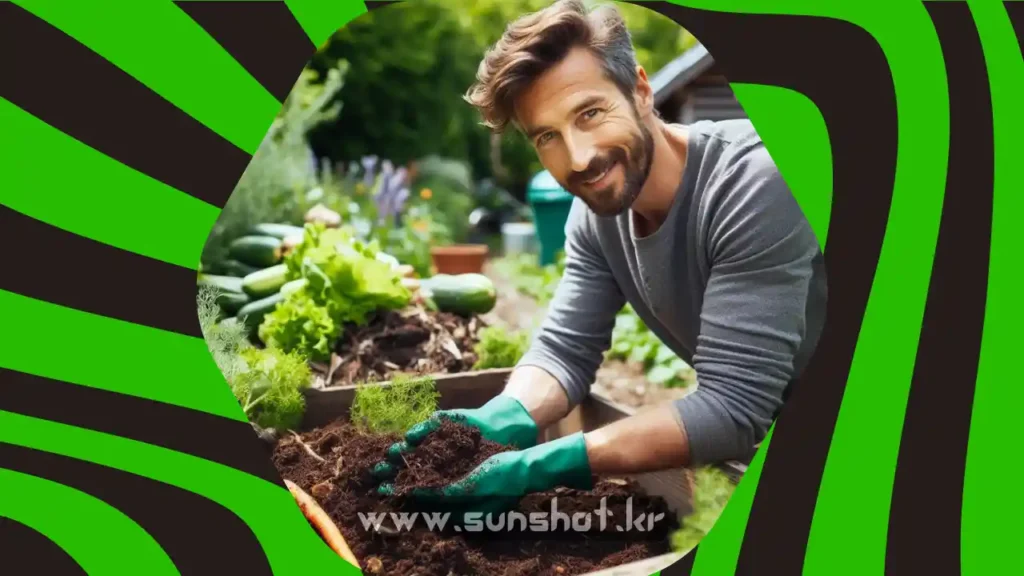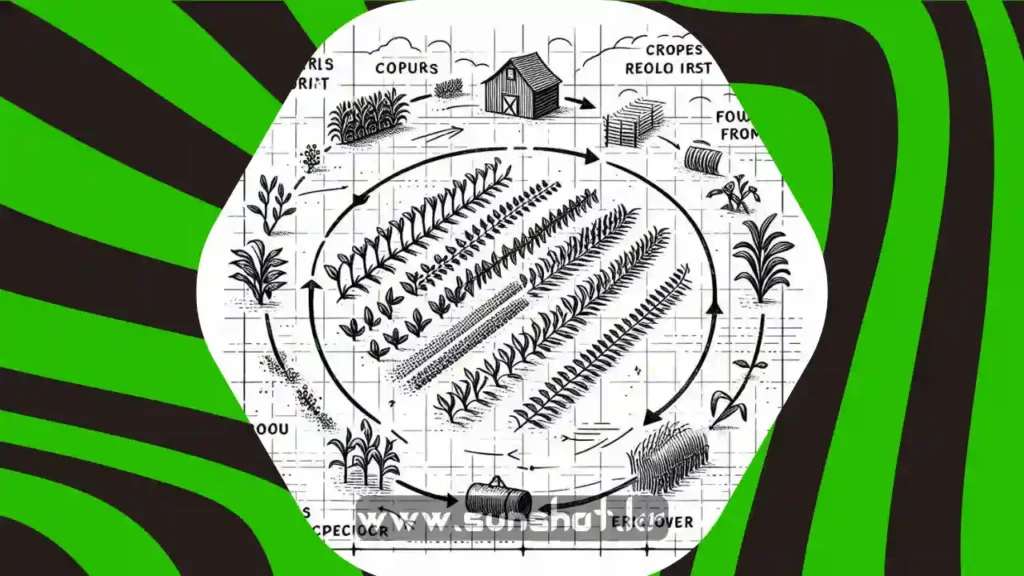Karl Shaffer Master Gardener Yakima
Karl Shaffer master gardener Yakima? Welcome to the wonderful world of gardening! Today, our guest will be Karl Shaffer, who served as an active master gardener from Yakima, Washington. Gardening is not just planting a seed into the ground; it is a process through which there is delight, learning, and closeness with nature. It is the love for gardening that Karl possesses that inspires many people around him and others who hear about him. He provides an example that everyone can do their own garden, no matter the place or experience level.
Karl says that gardening offers many benefits; it offers fresh food deliciously for mental and physical health improvement, creates beauty around us, giving life to our home and our neighborhood. He is on a mission to teach the beauty of gardening and the principle of sustainability in Yakima.
In this blog, we look at the following:
- Who is Karl Shaffer, and how did he become a master gardener?
- Why does local gardening bear importance to the communities?
- What different methods of gardening does Karl use and endorse?
- Tips for young upcoming gardeners to get you going.
- How the different methods of gardening compare to one another-pros and cons.
- Frequently asked questions about gardening that we will help you with.
- So put on your gardening gloves and follow along as we learn more about Karl’s life, and how you can begin your garden to be proud of!

Who is Karl Shaffer?
Karl Shaffer is a dedicated gardener that resides in Yakima, Washington. He had begun gardening as a small child, spending much time with his grandmother as she tended to her dynamic garden. These early experiences kindled a lifelong love for plants and nature, setting the course for his eventual work. Food magic fascinated Karl-growing it and watching it grow. A little later, deeper interest developed, and different techniques and methods began to be studied.
To formalize his knowledge and experience, Karl joined a master gardener program from the local extension service. The program aimed at educating him in horticulture, integrated pest management, including soil health and other garden-friendly sustainable practices. He worked hard and received his title as a master gardener. By this time, Karl did not intend to stop but wanted to share his experiences and expertise with the people in the community.
Subsequent to his master gardener certification, Karl engaged in many ways to promote gardening in Yakima. He held workshops for homeowners, demonstrating hands-on techniques and giving great tips. He also collaborated with local schools to develop lesson plans to teach kids about the value of growing one’s own food and how to care for the outdoors.
Karl is enthusiastic when it comes to gardening; according to him, anyone can learn to grow one’s own garden. He builds a very supportive and inclusive environment that literally invites people to come together with nature and with each other through the gardens. Such a commitment to community involvement and education has made him very popular here in Yakima.

Why Is Local Gardening Important?
There are many important reasons for local gardening to take place, from food security to community connection. Let’s look a little deeper at why neighborhood gardening matters.
Food Security
Growing one’s own food is an empowering way to enhance food security within the community. Also, when people have gardens of their own, dependency on grocery stores and commercial agriculture decreases. This has been very important during crisis times, such as in the current pandemic or in other natural disasters, where food supply chains could be disrupted.
More fresh and more nutritious, fruits and vegetables from the home garden are picked at their peak of ripeness for maximum flavor and health benefits. In growing one’s own food, one is in control of what goes into the meals that you consume and those consumed by your family, hence wholesome and chemical-free produce.
Environmental Benefits
This also concerns many positive effects on the environment itself. Plants are extremely important in the fight against climate change by absorbing carbon dioxide and releasing oxygen. In this way, the air is cleaned, and the total level of carbon is reduced. A local garden can contribute to biodiversity by maintaining the habitats of many types of wildlife, including birds, bees, and butterflies.
Besides, growing food locally reduces the need to transport produce over long distances, one of the contributors to greenhouse gas emissions. By deciding to garden in your community, you help build a more sustainable food system that works for the planet and your health.
Community Connection
Gardening enables a sense of community and neighborliness. Community gardens are places where people gather, share information, and support each other in developing their own plots. These shared plots of land bring people a sense of belonging and pride as they work together to grow produce and beautify their surroundings.
This is why Karl Shaffer places so much emphasis on local gardening in Yakima. He has led a number of community projects and activities aimed at building a collection of community gardens that serve to unite the community. He views the garden as a place not just for fresh vegetables but also for people to assemble, learn new things, and socialize. Therefore, Karl reasons that people can make good friends with each other in the garden and contribute towards a healthy, happier community.

Gardening Techniques Employed by Karl Shaffer
In his garden, Karl employs several techniques to ensure that the plants are healthy to give good crops. Let us look at some of the practices he has together with their advantages and disadvantages.
Organic Gardening
Karl uses organic gardening methods as one of the main approaches. In organic gardening, one pursues the art of raising plants without synthetic chemicals or pesticides. On the contrary, Karl simply adopts methods that will enable him to keep his garden healthy naturally. To begin with, he fertilizes the soil with compost and protects the plants by using natural control methods.
Advantages of Organic Gardening
- Healthier Produce: Organic fruits and vegetables are not contaminated with noxious chemicals and are, therefore, safer to consume. Many people also report that organic produce tastes better and is more nutritious .
- Environmental Safety: Organic methods are cleaner for the environment. They encourage biodiversity and contribute to ecosystem health.
Disadvantages of Organic Gardening
- Cost: Organic products tend to be more expensive than their conventional alternatives, thus dissuading gardeners from this style of gardening.
- Labor-intensive: Organic gardening usually requires more work regarding pest control and diseases. Gardeners may have to take a little more time to monitor their plants

Companion Planting
Karl also practices a companion planting strategy wherein various plants are grown together for each other’s advantages. For example, basil can be planted with tomatoes to keep infested insects away and generally healthy.
Advantages of Companion Planting
- Natural Pest Control: Several plants are capable of repelling pests, hence dispensing with the application of chemicals. This approach makes the garden robust.
- Maximising Space: Companion planting has the main advantage of maximizing the available space on a garden. It helps to diversify production in the garden, translating to a more improved general output.
Disadvantages of Companion Planting
- Complex Planning: Successful companion planting requires one to do intelligent planning whereby it is important to know which plants go well with others. This may prove difficult for beginners who are not used to the information on the compatibility of different plants.
- Limited Research: There is a great volume of anecdotal data supporting companion planting, though scientific research remains scant. This can make it tough for the gardener to know what works best for them.
Crop Rotation
Another technique which Karl promotes is crop rotation. It includes changing the type of crops one has in a particular place every year. For example, if he plants tomatoes in a particular spot this year, he will do beans or legumes in the same spot next year.
Benefits of Crop Rotation
- Soil Fertility: Different plants add different nutrients to the soil, making it more fertile. This does not lead to soil depletion but maintains the ecosystems healthy.
- Pest control: Rotation can disrupt the life cycles of pests and thereby reduce their numbers. The outcome will be healthier plants with higher yields.
Limitation of Crop Rotation
- It takes some planning on the part of the farmers to know what type of crop to plant and when. This can be frustrating and confusing for an amateur.
- Limited plant choices: Some plants are not suitable for rotation, which highly restricts the garden options for crop diversity.

Tips for Aspiring Gardeners
Tempted by this and thinking of getting started in gardening yourself? Here are some tips from Karl Shaffer that will help guide you through your journey:
Start Small
Among the best advice which Karl gives is to start small. Not necessarily something big, just maybe several pots in your balcony or some small patch in the backyard. This is going to be easier to grasp the basics and later get confident as a gardener.
Choose the Right Plants
The first thing to consider when choosing plants to plant in your garden is the type that will thrive well in your local climate. Tomatoes, peppers, carrots, and herbs like basil and parsley are some favorite choices for Yakima. Research which plants like your region, as this will increase your chances of success and enjoyment.
Prepare the Soil
The key to a healthy garden is the soil. Test your soil before planting to understand the pH and nutrient levels in it. That would give an idea of the need for using any type of amendments one may want or need. Adding organic matter, like compost, is an excellent way to improve the quality of the soil and make it rich for planting.
Water Wisely
Care must be taken while watering as this is the mainstay of a plant’s life, though one must do so judiciously. You must water your plants regularly; at the same time, care must be taken not to overwater it, which can cause root rot. The best time for watering is early morning since this helps to minimize evaporation. Your plants must be watched closely and checked for soil moisture. If it tends to be dry an inch down, then this is the proper time to water.
Learn from Others
This will be really helpful for the amateur gardener by joining local gardening clubs or hooking onto other groups online. Meeting people with similar interests opens up avenues to learn, ask questions, and share experiences. The support within this community aids one in growing as a gardener and may give long-lasting friendships.
Take these few tips and build an opportunity in the building of a vital garden that will develop and give fresh vegetables with delight to your home. Remember, patience is truly a virtue when it comes to gardening; one must learn and enjoy along the way!
Gardening Style Comparison
There are many ways of gardening, and all have their pros and cons. Three different styles of gardening are compared here, including their various advantages and disadvantages.
| Gardening Style | Advantages | Disadvantages |
|---|---|---|
| Organic Gardening | – Healthier produce – Environmentally friendly – Soil enrichment over time | – More expensive – Labor-intensive – Limited availability of products |
| Container Gardening | – Space-efficient – Easy to move – Control over soil quality | – Limited plant variety – Requires frequent watering – Higher costs for containers |
| Raised Bed Gardening | – Better soil control – Easier access – Extended growing season | – Initial setup cost – Limited soil depth – Ongoing maintenance needed |
Organic Gardening
Organic gardening evokes a sense of the need for cultivation without using synthetic chemicals. The style improves health and also preserves the environment for sustainable usage. However, organic gardening has been noted to be more cumbersome and expensive compared to other types of gardening. To gardeners, the benefits associated with this type of gardening outweigh the challenges.
Container Gardening
Those with small areas are best for container gardening. Plants can be grown in pots on balconies, patios, or small yards. This will give an efficient use of space and flexibility. However, the variety of plants to grow may be limited due to space and pot size.
Raised Bed Gardening
Raised bed gardening refers to gardening that has been pre-set in topography to higher heights than the surrounding areas. Such gardens allow for excellent soil control, drainage, and easy access to the plants, especially those reaching high or having tall stalks, thus reducing wear on your back and knees. Even though generally more expensive to build raised beds initially, compared to traditional gardening techniques, many gardeners consider it very much worth the investment due to the superior results.
Frequently Asked Questions FAQs
Q: Karl Shaffer Master Gardener?
A: Karl Shaffer is a credentialed Master Gardener with a strong background in horticulture. His specialty includes information and knowledge for gardeners of many skill levels. His efforts include sustainable gardening practices, he focuses on community outreach, and among his more local areas of concentration, he has taken a special interest in teaching those how to grow fruit trees.
Q: Karl Shaffer Master Gardener Yakima?
A: Karl Shaffer is a Master Gardener in Yakima, Washington. He engages his local community through workshops and community consulting. His work focuses on better community gardening practices and environmental stewardship.
Q: Karl Shaffer Master Gardener Email Address?
A: Karl Shaffer does not have a publicly accessible email address on the internet. For direct communication, it is suggested that you connect with him through local gardening programs or organizations he is working with so your inquiries get properly channeled to him.
Q: Karl Shaffer Master Gardener Contact?
A: Contact info for Karl Shaffer is not in public. Interested parties can seek to connect through the local Master Gardener programs, or community gardening initiatives. Certain organizations can aid further one in communication with him.
Q: Karl Shaffer Master Gardener Email NYC?
A: There doesn’t seem to be a public email address for Karl Shaffer to which you might submit questions related to New York City. For everything else about gardening in NYC, contact local horticultural organizations or Master Gardener programs. They will be able to help you or steer your questions in the right direction.
Q: Karl Shaffer Master Gardener Contact Information?
A: Relatively little contact information is publicly available about Karl Shaffer. To find local organizations dealing with gardening and/or Master Gardener programs, it would be best to contact regional associations in your area – they can help you further or forward your request to him.
Q: How Long Before I Begin a Garden?
A: The best time to plant anything in the garden will again depend upon your local climate. In Yakima, early spring is good for planting cool-season crops, such as lettuce and peas. Warmer-season crops can be planted later in spring when the chance of frost can be ruled out. You really should usually check your local frost dates and length of your growing season for success.
Q: How do I improve my soil?
A: The quality of the soil has to be improved if you want to raise healthy plants. Adding organic matter to your soil, be it compost or well-rotted manure, improves its nutrient value and makes the drainage good. You also are in a position to test your soil for the level of pH and nutrient content in your soil so as to make informed decisions on what amendments may be needed.
Q: What are some of the best plants for Yakima’s climate?
A: Yakima’s climate lends itself well to most vegetation varieties. Most perfect would be tomatoes, peppers, carrots, squash, basil, parsley, and cilantro. When choosing what plants to plant, consider what you have for growing conditions regarding sunlight and space.
Q: How often should I water my plants?
A: Watering depends upon the type of plants and the weather. Generally speaking, watering deep and less frequently is best as this encourages deep root growth in your plants. Another good time to water is early morning-the plants will have the day to absorb most of the moisture before the heat of the day. Monitor the plants closely. If the top inch of soil feels dry, it’s time to water.
Q: How do I attract pollinators into my garden?
A: This can be done by attracting pollinators into the garden. Plant numerous types of flowering plants that are in bloom during various times of the year, thus providing constant sources of nectar and pollen. Native plants are even more useful, since they have already adapted to living in your native biome. Avoid using pesticides, as these do harm to desirable insects, and make habitats, when possible, for the support of such species-populations, as in bee hotels or butterfly gardens.
Conclusion
Karl Shaffer master gardener Yakima had an infectious enthusiasm for the joys of growing things. He taught and promoted the community about the value of local gardening for food security, environmental health, and community connectedness. Whether one is an old pro or a total beginner, there are endless opportunities to grow, learn, and connect with nature.
With the tips and techniques shared in this post, let your garden grow to keep fresh produce in your life and beautify it. Remember, gardening is a journey; so be patient, stay curious, and enjoy every moment in your garden!
key takeaways
- Master Gardener Program Participation: Karl Shaffer is a participant of the WSU Yakima County Master Gardener program whose main purpose is to train individuals so that they can actively volunteer in the community gardens and perform educational and gardening functions.
- Community Engagement: Yakima’s Master Gardeners, including Shaffer, provide horticultural education by running diagnostic based clinics, providing aftercare service to clients, or sustaining existing gardens. These are such spaces as the Demonstration Garden and the Heirloom Garden which have activities including but not limited to classes and workshops during the growing season.
- Youth and Public Outreach: The program contains outreach activities such as gardening lessons to the youth and lectures to the public. Shaffer and other volunteers historically and actively participate in such programs as these which aim to learn people gardening and its environmental aspects.
- Volunteer Impact: A few thousand hours are attributed to the program’s volunteers on a yearly basis. Besides helping others growing vegetables and flowers, Shaffer and others also spend some time looking after garden areas.
- Support for Local Food Banks: Master Gardeners are also involved in food security initiatives, such as the Food Garden in West Valley, which donated approximately 3,000 pounds of fresh produce to food banks.
- Educational Contributions: It is possible that Shaffer is also involved in the Master Gardener program by, for instance, engaging in such activities as writing publications to the local media.
- Ongoing Training and Certification: The program is not only that of sensitization but also of refresher courses to the volunteers each year. Majority of the volunteers have to undertake a certain number of training hours in a year to keep up their certification.
Read More Lifestyle Blog Post:
- Can You Wear a Linen Top with Workout Pants?
 Can You Wear a Linen Top with Workout Pants? That sounds a little different, but it’s already turning into a style choice. So yes, it would seem that most people mix comfortable and cool linen tops sportily with workout pants to create an amusing and stylish look. In this article, we are going to see
Can You Wear a Linen Top with Workout Pants? That sounds a little different, but it’s already turning into a style choice. So yes, it would seem that most people mix comfortable and cool linen tops sportily with workout pants to create an amusing and stylish look. In this article, we are going to see - Joseph White Mental Health Counselor Virginia NPI?
 Joseph White Mental Health Counselor Virginia NPI Joseph White: Virginia Mental Health Counselor Mental health care is very crucial in this world of today, accelerating fast. A lot of people suffer from anxiety and depression besides issues relating to bad relations. All this makes a difference if you or someone close to you goes to
Joseph White Mental Health Counselor Virginia NPI Joseph White: Virginia Mental Health Counselor Mental health care is very crucial in this world of today, accelerating fast. A lot of people suffer from anxiety and depression besides issues relating to bad relations. All this makes a difference if you or someone close to you goes to - Lifestyle Royal Lake Village?
 Lifestyle Royal Lake Village is a given example of naturalness perfectly interwoven with modernity. It’s the perfect answer for people looking to live in an area that’s close to nature while giving them the thrill of civilization at its finest. For an inquisitive person about what life would be or, more to the point, even
Lifestyle Royal Lake Village is a given example of naturalness perfectly interwoven with modernity. It’s the perfect answer for people looking to live in an area that’s close to nature while giving them the thrill of civilization at its finest. For an inquisitive person about what life would be or, more to the point, even - How Much Does It Cost to Wrap a Car? 2024
 How Much Does It Cost to Wrap a Car? So, you want a change of look for that vehicle, and car wrap is an excellent idea. But how much does it cost to wrap a car in 2024? So, well, this article takes you through everything you have to know concerning the cost, types, and
How Much Does It Cost to Wrap a Car? So, you want a change of look for that vehicle, and car wrap is an excellent idea. But how much does it cost to wrap a car in 2024? So, well, this article takes you through everything you have to know concerning the cost, types, and - Capital One Bank Settlement 2024 How Much Will I Get?
 Capital one bank settlement 2024 how much will i get? The Capital One Bank Settlement 2024 will pay up about 98 million people who had their information compromised due to a data breach in 2019. The total settlement is $190 million, for which the eligible individuals can get paid as much as $25,000 dollars. Payments
Capital one bank settlement 2024 how much will i get? The Capital One Bank Settlement 2024 will pay up about 98 million people who had their information compromised due to a data breach in 2019. The total settlement is $190 million, for which the eligible individuals can get paid as much as $25,000 dollars. Payments





